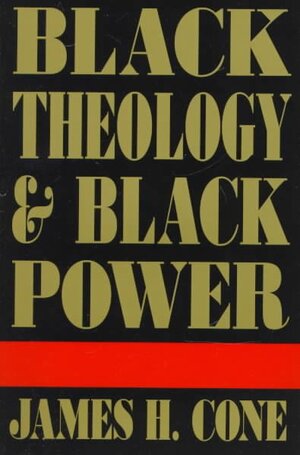Article in spoiler tags because it's long
spoiler
How many children does it take to ruin a golf game? In the case of Lakeway, Texas, a suburb of Austin, the answer was five. That’s how many children are enrolled in Rainbow’s Edge Daycare, which has become the subject of a 72-hole legal battle since a brigade of golfers complained about the children in the summer of 2021. “There are gonna be toys out there, and they’re right on the golf course,” Lakeway golfer Joe Bain (the town’s former mayor) said during a series of city hearings that year to determine whether the day care could continue to operate. “The noise is disturbing the players.”
The owner of the day care, Bianca King, has spent the 18 months since jumping through hoops to get her home business into the good graces of Lakeway’s government. This month, the city denied her a special-use permit—another setback in a multiyear saga to operate a six-child day care in a residential neighborhood. It’s a story that gets to the essential paradox at the heart of the American suburb: If it’s the best place in the world to raise children, then why is it so bad?
“It seemed like a wonderful place to raise a family,” King reflected on Lakeway, where she moved in the summer of 2020 with her son, now 3 years old, and daughter, 5. Does it still? “Believe me, now I’m asking myself that all the time. They’ve made it impossible for me to earn an honest living.” The city’s case against King’s day care is only partly about golf. More broadly, the issue is that King lives—like most Americans—in a neighborhood reserved for single-family homes, in a city that places substantial restrictions on home businesses. But that line between a home and a business isn’t so clear. Granted, few people would like to live next to a home firework factory. Yet most people, these days, have a few neighbors who punch in for a few hours of keyboard work from their living room.
A day care falls somewhere between the two on the neighborhood disruption scale, but perhaps it deserves some special consideration. After all, taking care of kids (for money or otherwise) is a tradition of domestic life even older than golf. In terms of its effect on the neighborhood, what distinguishes a day care from a large family or a regular playdate? In terms of commercial activity, what makes a day care different from a nanny? In terms of traffic and parking, what makes a day care different from a bridge game?
Those are some of the questions King’s lawyers, a pro bono team from the Institute for Justice, have asked of Lakeway’s city council in a lawsuit. The city, the lawyers note, “requires home businesses to meet a list of 19 separate provisions, which are almost completely impossible to achieve.” Prohibitions on visits from clients and stocking merchandise seem to prohibit home baking, tutoring, music lessons, and even some white-collar work like architecture. “Lots of zoning laws are complaint-driven,” observed Jared McClain, one of King’s lawyers. In other words, the only characteristic that really matters for a home business is whether someone has made a fuss. At that point, the law is so restrictive that the city has discretion to decide on a case-by-case basis.
Lakeway Mayor Thomas Kilgore, who is pro-day care, defended the city’s policies in an email. “The purpose of obtaining the permit is to help understand the nature of the home occupation and to balance that occupation against the rights of the neighboring residents,” he wrote. “Preserving the residential nature of single-family zoning districts is an important function of municipal zoning authority.” After the initial complaint, he said, the city had received two further complaints about the day care. Both were about parking.
Bianca King started Rainbow’s Edge Daycare in January 2021. She’d bought a house in Lakeway the previous year, after being laid off from a corporate job in California. She registered with the state of Texas, renovated her living room, and installed a self-locking fence. The name she got from a Fleetwood Mac song. She passed two state inspections and recruited her neighbors at the playground. The Omicron wave was cresting and parents were scrambling. “I’m a single mother, and I talked to other mothers, it was a disaster,” she said. “It’s still a hardship. There’s long waiting lists, high turnover. Childcare is going through the thing other industries are going through—workers are just leaving.” Nearly 90,000 workers quit the child care industry between September 2020 and September 2022. Another analysis records the workforce declining by almost 10 percent in that time. Small shops like Bianca’s play a huge role in that ecosystem: About 30 percent of infants and toddlers attend home-based childcare, about three times as many as attend commercial day cares.
But it’s always touch-and-go with homeowners associations and local governments. Seventy-five million Americans live in HOAs, where day cares can often be discouraged or prohibited depending on state law. “Policies favoring home-based day care centers don’t require you to totally capitulate to the businesses,” the publication HOA Leader advises. “You can take actions to affect them and protect other owners from their effects.” In the suburbs of Columbus, day care operator Sylvia Stafford is in her third year of fighting her HOA, which has asked a court to shut her down. In the suburbs of Indianapolis, a neighbor harassed a family operating a daycare in her HOA until they shut down. Conditions are a bit more favorable in towns and cities, but complicated regulations or expensive permit applications can stop would-be day cares before they start. And sometimes zoning commissions simply say no. All these choke points help contribute to the child-care shortage, which in turn puts costs and stress on families and keeps women out of the workforce.
After the brouhaha with the golfers, the city told King to apply for a local permit to complement her state license. After five months and two public hearings, she was denied. She appealed to the board of adjustments, and lost at the start of 2022. Last August, the city revised its code to create a special-use permit for day cares. King applied again, with a recommendation from the town’s planning board. She was denied earlier this month.
Why does Lakeway want to close King’s day care so badly? Surely it doesn’t hurt that one of the golfers is the town’s former mayor. According to Community Impact, council member Kelly Brynteson, who voted against creating a special process for daycares, said: “I don’t want my neighbor running a business. The majority of people want to go home to their R1 sanctuary and get away from people, not to have extra traffic and extra promotions.” Mayor pro tem Gretchen Vance, voting to deny King’s latest permit, took issue with King asking for permission to hire an employee. “I feel like every time we come back for a bite of the apple with this applicant it gets bigger and bigger and bigger,” Vance said. So King’s day care is once again illegal. Her lawyers say they are weighing their options. If the day care is shut down, five families will be looking for new help, and have to separate their kids from their friends.
On the other hand, there has never been a better time to play the eighth hole at the Hills Country Club.
lol, they're doing this over 5 kids?! How long until :amerikkka: is going to "Don't tread on me" and /or HOA property values itself into single child policy?
At least Mr. Bain is living up to his name :joker-amerikkklap:
Come and take it t-shirt but it's a golf club with a crying child.
If you want a picture of American suburbs, imagine a golf club whacking a child's face – for ever.
Five kids is too much for these prissy golfers? If I got a complaint like that I would be in my backyard loudly enjoying the most irritating music imaginable all day, every day.
Snipping, snipping, snipping goes the scissor man
Have a friend who lived in a HOA which made him take down the bird feeders in his back yard because the neighbors were complaining there was too much bird shit.
I would have looked up the HOA board members' addresses and performed drive-by seedings in the cover of night.
Then proceed to complain when people aren't having kids anymore
George Carlin was right about golfers, bunch of wealthy pricks who don't have the mental capacity to do something worthwhile as a hobby
Well she lost a job and then bought a house in Lakeview adjacent to a golf course
Something tells me she’s not struggling that hard if she can qualify to buy a house without income
isn’t she doing what we would want someone in her position to be doing?
Seems to be moralizing. I don’t expect bourgies to do anything but allow their property to be seized and become proletarianized. I don’t think politics is about a personal quest for moral salvation, I think it’s a class project of material power. There’s no bourgie redemption quest that I give a shit about.
Seems like an uncomplicatedly good thing, wether or not she has money.
More moralizing, what does it matter if it’s a good or bad thing? Seems completely pointless of a thing to talk about. I’m with Kissinger, this is bougie friendly fire pertaining to the peculiarities of their anglo havens and where they draw the lines on socially dominating each other. Interesting to observe maybe, but of no political character that concerns us
The only thing worse than the sport of golf are the golfers who play it.
Fuck golf.
This doesn't surprise me at all. Lakeway is for old, rich, white people.
Granted, few people would like to live next to a home firework factory.
I have never thought about this before, but I don't see why not. Death to America and all that but I bet the July 4th neighbourhood gathering would be a pretty awesome spectacle. If you're fully americabrained I couldn't imagine a better place to live.
It's not about golf.
council member Kelly Brynteson, who voted against creating a special process for daycares, said: “I don’t want my neighbor running a business. The majority of people want to go home to their R1 sanctuary and get away from people, not to have extra traffic and extra promotions.”
It's about the use of zoning code as a bludgeon to remove all social aspects of neighborhoods, and enforce shutting everyone off from the world.









